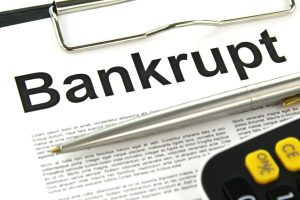+Employers have a wide range of checks which they can run on an applicant. Most of us have heard of DBS checks, which used to be called CRB checks. However, do you really understand what sort of information is given on a DBS certificate? Don’t worry if you don’t – you’re not alone. One of the main areas of confusion is about what sort of financial information will be disclosed. Do you really have to tell an employer that you went bankrupt in your 20s? Or what about that County Court Judgement (CCJ) for an unpaid bill?
Be clear about the checks your employer is doing
The main reason for confusion is that many of us think that one check covers everything. A DBS check only shows your criminal record. There are three different levels of DBS checking. Anyone can apply for a basic DBS check. Only people being employed for specific types of jobs need a standard or enhanced check. In other situations, your employer might ask for a credit check. This is common practice for the banking and finance industry. To put it bluntly, they don’t want someone with extensive debt being tempted by having access to cash. But that’s not the same as a DBS check. Employers also check as standard that you have the right to live and work in the UK. That’s not a DBS check either.
Implications of Bankruptcy and CCJs
 Bankruptcy is a legal process which you hand over your assets and any debts to a legal professional who then deals with matters on your behalf. Bankruptcy is a serious step, and usually only happens when someone has been struggling for several years. If you’re applying for a job in the finance sector, it’s common practice for them to ask if you’ve ever been declared bankrupt. Answer honestly. Bankruptcy can also make it difficult to get credit, even several years later. A CCJ, or County Court Judgement, is a ruling made against you if you don’t pay a debt. These may stay on your credit file for several years and make it difficult to take out loans or credit. However, a CCJ is not a criminal offence and won’t appear on a DBS certificate.
Bankruptcy is a legal process which you hand over your assets and any debts to a legal professional who then deals with matters on your behalf. Bankruptcy is a serious step, and usually only happens when someone has been struggling for several years. If you’re applying for a job in the finance sector, it’s common practice for them to ask if you’ve ever been declared bankrupt. Answer honestly. Bankruptcy can also make it difficult to get credit, even several years later. A CCJ, or County Court Judgement, is a ruling made against you if you don’t pay a debt. These may stay on your credit file for several years and make it difficult to take out loans or credit. However, a CCJ is not a criminal offence and won’t appear on a DBS certificate.
Financial Matters and DBS Checks
There are some financial matters which may appear on criminal records checks. If you appear in court on a charge and are fined by the magistrate or judge, you have a legal obligation to pay. If you don’t pay your fine, then you are committing a criminal offence. Prison is the last resort of the court. If you don’t pay fines, then they will try to take money from your wages or set up a payment plan first. Remember, you can only get a conviction for non-payment of a fine in certain situations. If you are struggling with debt, take advice from one of the debt charities or the Citizens Advice Bureau before it even gets to the stage of worrying about court fines, CCJ and bankruptcy.